Breaking the Stigma: Four Seniors Aim to Change the Conversation on Periods
Seniors Alison Paguio, Abby Baines, Annie Hoang, and Amira Tripp Folsom are working towards normalizing the discussion of menstruation in the La Salle community.
December 11, 2019
Every person who menstruates has an embarrassing story, a time when they have started their period at an inconvenient time, like in the middle of class. You quickly reach into your backpack, dig through your papers and pens until you find a pad or tampon, quickly shove it up your sleeve, and then hurry to the bathroom.
Although they are experienced by roughly half the world’s population, periods remain a topic often only whispered about.
Almost two years ago when they were sophomores, seniors Alison Paguio, Annie Hoang, Abby Baines, and Amira Tripp Folsom joined other women around Oregon attending a Women’s Empowerment Summit held by the program GOALS (Girls, Oregon, Action, Leadership, Service).
After hearing women of all ages share their experiences, journeys, and hopes for the future, the four young women became inspired, specifically by keynote speaker Nadya Okamoto, to help spark conversation at La Salle about periods.
Now as seniors, the four La Salle students run the Menstrual Advocacy Club, a service-based club that aims to educate others on menstruation and support homeless people experiencing menstruation.
Baines said that the club wants “people to have better access to period products and products that can help break the stigma around periods, because people are often really uncomfortable when you’re just having a conversation [about periods].”
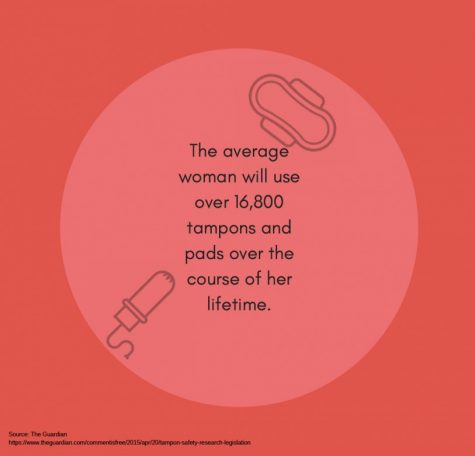
Avery Eldon
A misconception people might have when they hear about a “period club” would be a group of girls complaining about their periods, when the reality is very different.
“The purpose is to advocate for [the] homeless, advocate [against] the stigma around periods, and also just [how] dire the need [is] for menstrual supplies to homeless people who experience periods,” Hoang said. “So it’s kind of a mix of educating people in our community as well as doing service for people in the greater community of Portland.”
M.A.C. is considered a “chapter” of the non-profit PERIOD. There are over 450 chapters across the globe run by young advocates on the mission to end period poverty and stigma. The non-profit PERIOD was created by 21-year-old Oregonian Nadya Okamoto.
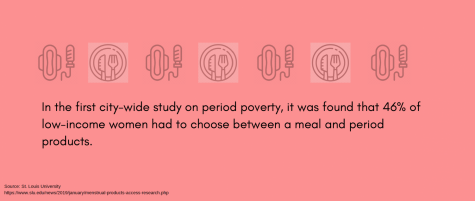
Avery Eldon
Due to some concern around whether or not the club is appropriate, Baines said that the La Salle administration did not initially approve of the club. Baines said that the students changed the club’s name, which they originally wanted to be the Period Club, and also worked to prove the authenticity of PERIOD, making clear it was not associated with pro-life organizations. This set the girls back for a bit, but it didn’t stop them.
“Some of the reasons we were told we weren’t allowed to have the club was the name was inappropriate and [it was] in your face,” Baines said. “[This] just shows how important it is that we need to have the club, because there was a stigma around the word ‘period’.”
La Salle principal Mr. Andrew Kuffner said that the administration’s concern about the club’s name was due to sensitivity around how it would be promoted around the school and how it could be perceived by others.
“We asked the club to propose alternate names mostly because they wanted to post the name around the school and we wanted to be sensitive to what we are posting and how it could be taken out of context, especially by visitors to our campus,” he said.
After the development of compromises with the administration about the name, M.A.C. was born in January of this year. With many plans for the rest of the year, the girls were excited to get more La Salle students involved in the club.
Science teacher Ms. Carie Coleman said she was honored to be asked to moderate the club because “they were so excited. I could just tell that this was something really important to them and to really look at not just women’s rights, which are human rights, but to really break down [the] barriers of what it means to be a woman.”
With periods affecting about 50% of the world’s population, people still back away from conversations surrounding periods.
“It would [be great to] break down a lot of barriers by understanding exactly what women go through every month, and to understand the anatomy and the physiology behind it,” Ms. Coleman said. “The more knowledge that we have, the better we understand each other.”
“Knowledge is power, and to understand what a woman’s body goes through every month… it might sound radical but it happens, and there’s a lot of misinformation about it,” Ms. Coleman said. “Guys will make excuses on why girls are… moody, but also sometimes I think women take advantage of that too, and so the more knowledge that we all have, the better.”
In addition to the work M.A.C. does, other members of the La Salle community have started drives for items such as bras and other hygienic supplies for the homeless in the Portland community.
“Ms. Maher is collecting bras for a women’s radical hospitality group,” Ms. Coleman said. “These are women who are experiencing homelessness and domestic violence. These are basic care items that women need to just be healthy and to be hygienic.”
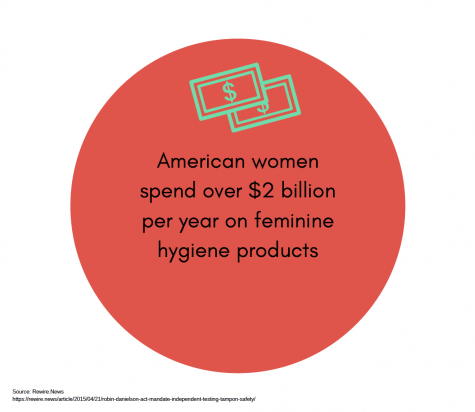
Avery Eldon
At La Salle, if a girl needs a pad or tampon, she must miss class and walk to the office, or to the girls’ locker room. The six girls’ bathrooms are not equipped with any menstrual supplies.
One issue that Ms. Coleman noted is the “tampon tax”, which is a tax that is placed on feminine products, in more than half of the states in America.
“Tampons and pads are [still] taxed in Washington state… every woman goes through this, shouldn’t that be available?” Ms. Coleman said. “ It’s an argument to have and [it] would be wonderful to see that kind of advocacy… I want to make sure that every woman in the state of Oregon and Washington, [and] obviously [the] United States, [has] these basic needs met. I don’t think that a person should have to choose between feeding their kids and having menstruation supplies they need.”
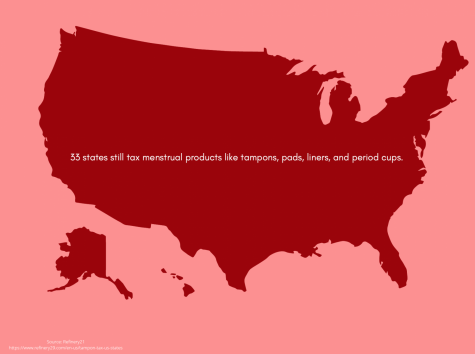
Avery Eldon
Looking ahead to the rest of the year, the seniors are excited for future packing parties, service opportunities and more La Salle students uniting to break the stigma and end period poverty.
Even though their time at La Salle is coming to an end, all of the girls have ideas, goals and hopes for the future of the club and their own journey in advocacy and with PERIOD.
“After all of us leave off to college, I really hope that the remaining members of M.A.C. will look at the issue of Menstrual Advocacy through a lense of intersectionality,” Tripp Folsom said. “I hope that we can be mindful to all the people that we serve. When I leave La Salle, I hope to bring M.A.C. or PERIOD to whichever college I attend.”

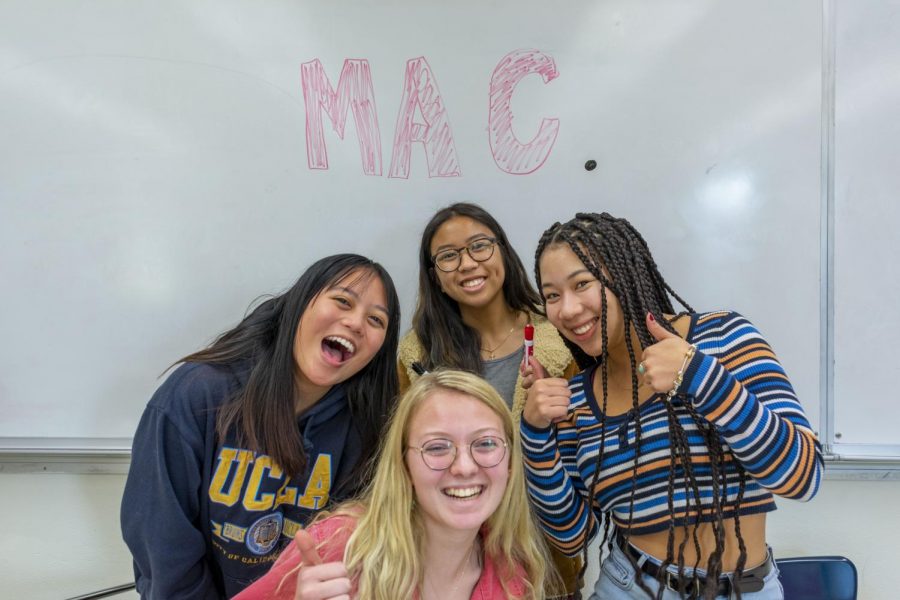
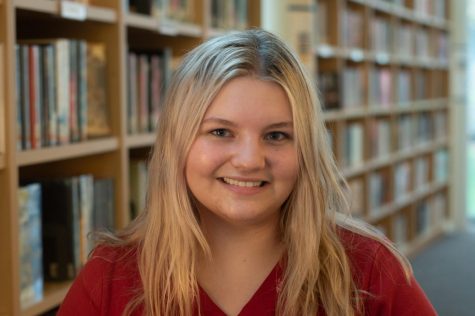



Tom McLaughlin • Jan 8, 2020 at 1:32 pm
Thank you, Alison, Annie, Abby, and Amira for your leadership on this issue, and others. You are bold, powerful women who do the work of love in the world, and I’m proud to be part of your community.
Brian Devine • Dec 18, 2019 at 10:41 am
Our students continue to lead in inspiring ways. Proof that this is not just a local issue: This year’s CNN Hero of the Year is Freweini Mebrahtu who is working to end the stigma around periods in her country of Ethiopia. Kudos to the MAC club leaders!
https://www.cnn.com/2019/12/08/world/freweini-mebrahtu-2019-cnn-hero-of-the-year/index.html
Lisa Daniels • Dec 16, 2019 at 11:48 am
Thank you for highlighting the work of these students. By starting the conversation, they are taking the stigma out of the conversation and showing us how to help those living in cultures where periods limit lives.
Caitlin Hudson • Dec 13, 2019 at 9:10 am
I’m so proud of all of you for doing this!! Thank you for doing this work at La Salle + beyond!
Cha Asokan • Dec 11, 2019 at 10:36 pm
Super important work being done, so proud to know such powerful and inspiring women.
Abi Sanchez • Dec 11, 2019 at 9:41 pm
I loved this !! thank you for coming out & writing a story on these four amazing girls who are stepping out to create change here at LaSalle. It’s so important for people to become aware of period poverty because so many people are being affected by it !